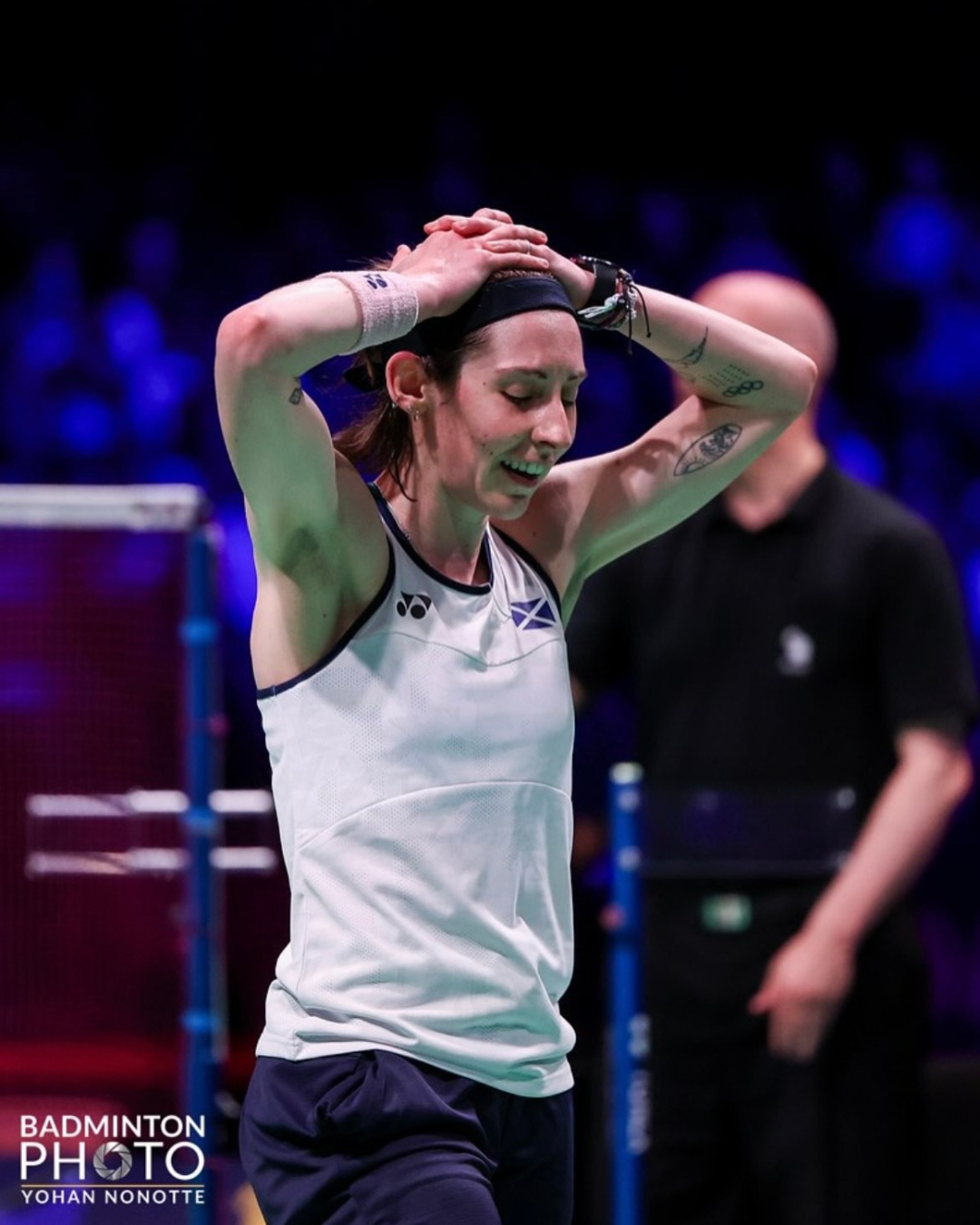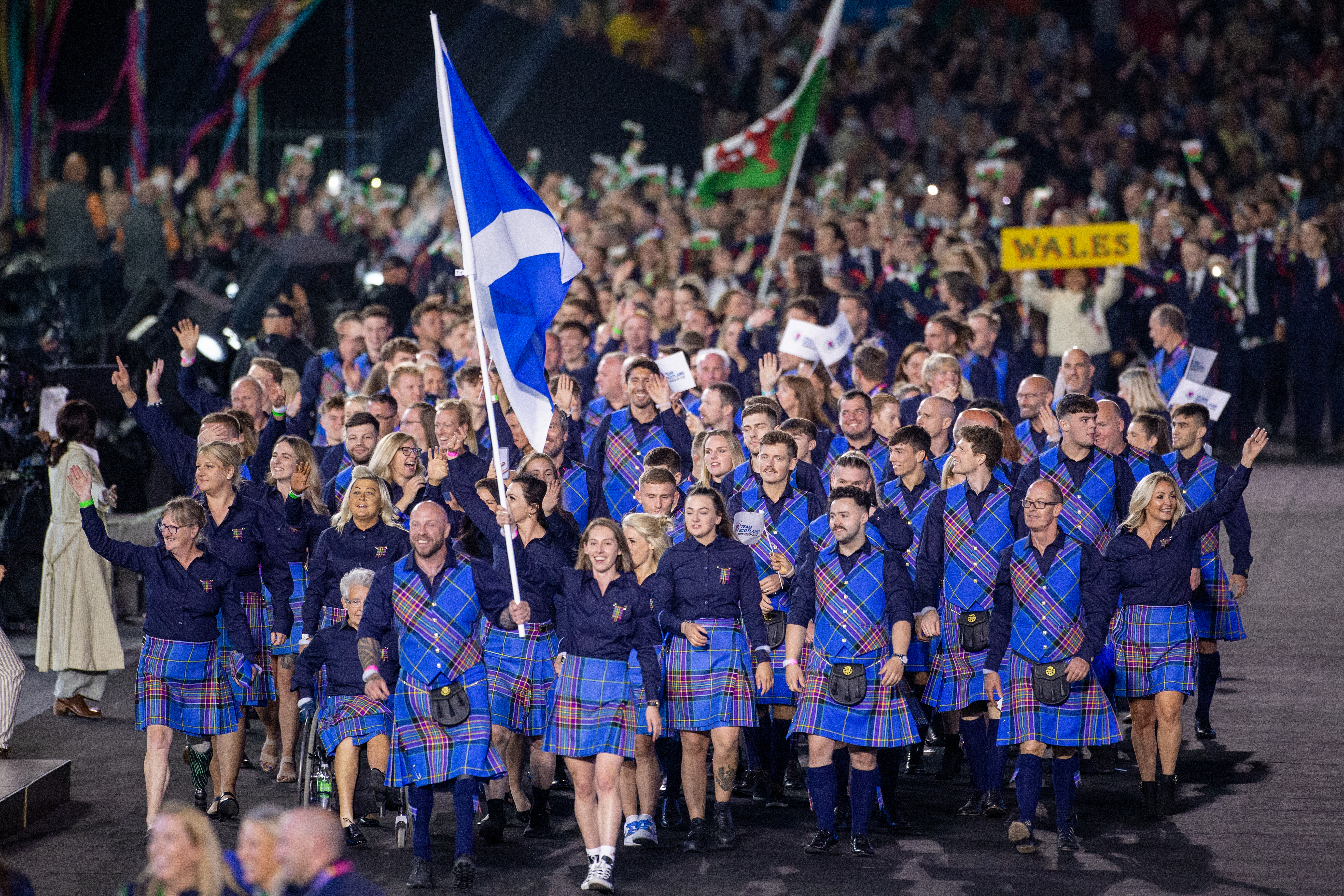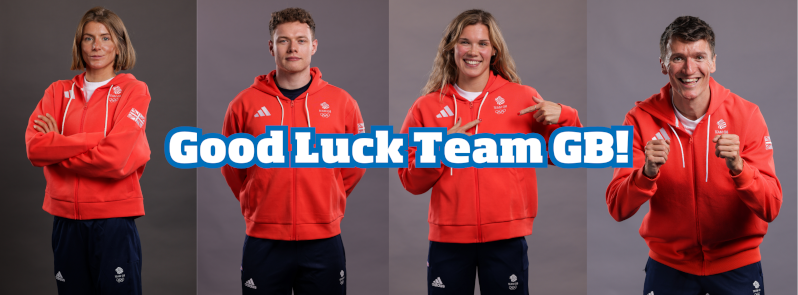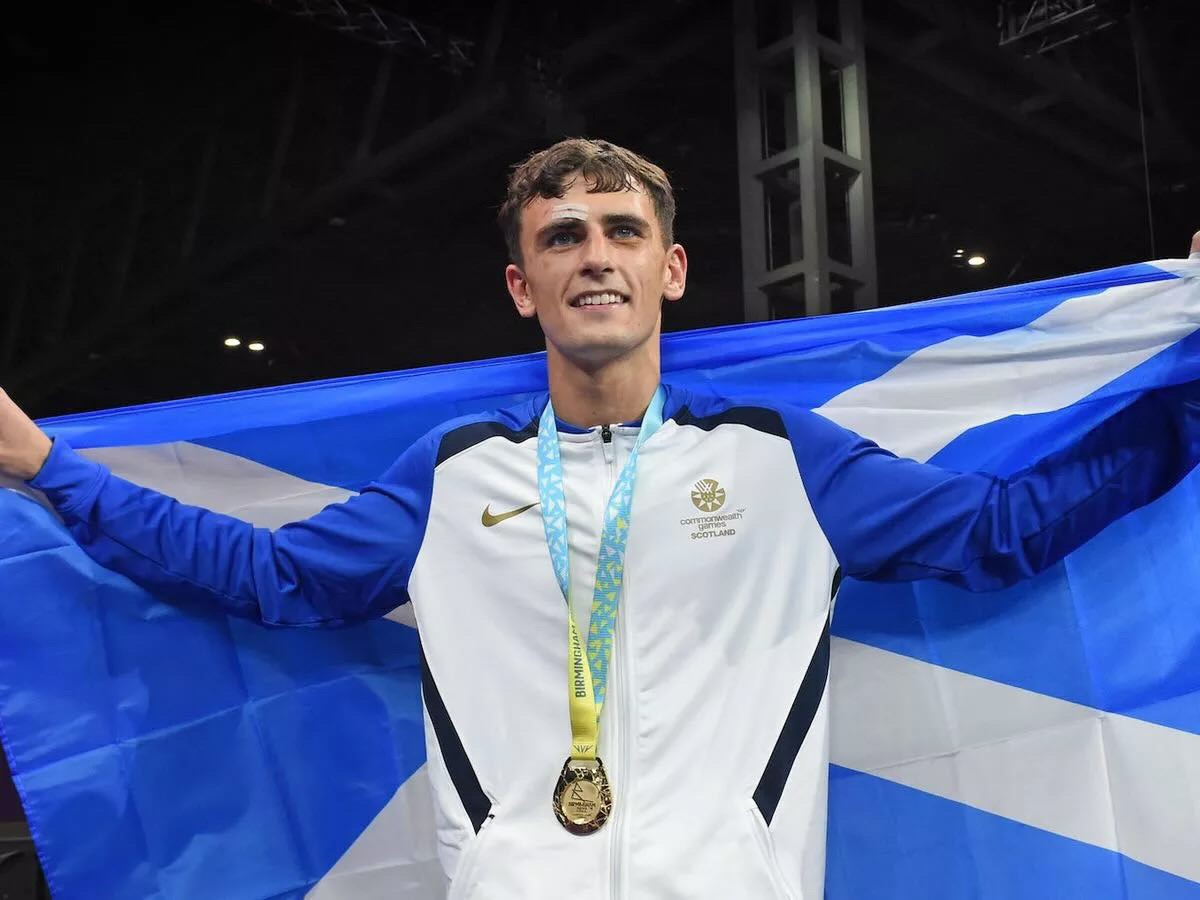With four Commonwealth Games, three Olympics, 10 European medals and 14 international titles to her name, Team Scotland and Team GB badminton player Kirsty Gilmour has certainly cemented her name in the history books.
Now, at 31, and in what she describes as “the winter” of her career, Kirsty is still competing at the highest level with her sights firmly set on the LA 2028 Olympic Games.
“That would be my fourth Olympics, which I think has a nice ring to it,” she shared.
“I’m still here, still competing, and still loving it.”
We sat down with Kirsty to chat through her sporting journey, what it means to be an LGBTQIA+ athlete, and ask about her hopes for the future, both in her personal life and in the world of inclusive sport.
Back to the beginning
Kirsty’s journey into badminton was almost inevitable. Growing up, Kirsty looked up to both her dad, the national U15 coach, and her uncle, an international player with 50 caps for Scotland.
“I probably first picked up a racket when I was four,” she recalled.
“My dad coached me until I was about 11, then handed me over to my uncle when I hit that ‘shut up, Dad’ phase,” she joked.
Kirsty went on to attend the Glasgow School of Sport for her secondary education, allowing her to balance education with elite training.
“By 15, I was training with the senior squad. And from 17, I considered myself a full-time athlete.”
But school wasn’t always easy.
“Socially, it was tough,” she admits.
“I was a bit of a tomboy, and I sat somewhere in the middle of the boys and girls. I think if I hadn’t had sport, or if I wasn’t good at it, I might have been bullied more. Sport gave me an escape—and a level of respect.”
That escape became a lifeline.
“I definitely got picked on for being a try-hard. I was locked and loaded every day as a teenager, and that wasn’t really normal.
"But now, looking back, I wish I could tell 14-year-old Kirsty that it would all work out.”
Making it on the world stage
Kirsty’s breakthrough came early. She won her first international title at 18 and hasn’t looked back since.
“Glasgow 2014 was a career highlight. I was 20, and I’m so glad it came when it did. I didn’t overthink it—I just went out and played.”
She followed that silver medal with another at the Gold Coast in 2018, proving to herself that it wasn’t a fluke.
“Doing it once is great, but backing it up shows it wasn’t just luck.”
Kirsty has also taken immense pride in helping Scotland’s women to collectively win European medals.
“The last two Women’s Team Championships, we’ve won bronze medals, and I think that’s such a fair reflection of where we’re at as a country.
“Winning back-to-back is so satisfying to me – it solidifies that this is the level we’re at now.”
 Coming out and stepping up
Coming out and stepping up
Kirsty came out publicly in 2021, though she’d been out to family and friends for years.
“I was really lucky that the bubble of people I have around me have never batted an eyelid about my sexuality.”
“I just put a tiny rainbow flag in my Instagram bio. That was it,” she shared.
Her experience has been overwhelmingly positive.
“I’ve never received a single negative message about being gay.
“The badminton community is so knowledgeable and respectful. If you’re a good player and conduct yourself well, they’re on board.”
But she knows her story isn’t universal.
“I’m aware of the worst-case scenarios, even though I haven’t experienced them. That’s why I want to share a positive story. It’s not all doom and gloom. Coming out can go perfectly—and no one will care, in the best way.”
As the only out LGBTQIA+ badminton player at the last Olympics, Kirsty recognises the importance of visibility.
“It doesn’t feel like pressure, but I do think it’s important. I know there are others in the sport who aren’t out publicly. I’d love to see more people come out—it helps usher in the next generation.”
Inspiring others
To young LGBTQIA+ athletes, Kirsty’s message is clear:
“Take your time. Know yourself. Surround yourself with people who accept you—and that place can be sport.”
She’s passionate about the power of sport to provide a safe space.
“Despite what the media might tell you, sport can be a safe place. It’s a silly activity at its core—just humans doing weird things like running in straight lines or hitting a shuttle.
“But it’s also a place where you can just be you.”
And when it comes to coming out, she offers reassurance.
“There’s a timeline where you come out and everyone’s like, ‘Cool,’ and you carry on as normal. That’s possible too.”
Looking Ahead
As she approaches the final chapter of her playing career, Kirsty is thinking about what comes next, both in her personal life and in the world of sport.
“I’d love to see better legislation for inclusivity at all levels,” she shared.
“There’s been a lot of progress in things like protecting LGBTQIA+ athletes in sponsorship contracts, and I would like to see that continue.
“There’s no reason why someone should lose or not be considered for a sponsorship because they’re LGBTQIA+. It’s happened to too many athletes, and I’m sure it’s probably happened to me.”
In her personal life, Kirsty is looking forward to the next few ‘bonus’ years.
“I’ve been doing a lot of work with my sports psychologist, Misha, around seeing these next few years as bonus fun years and not the clock running out.
“The European medal I won in April is a good example. I didn’t know how that week was going to go, and to be honest, I was just happy to be there, so I’ll absolutely take that result.”
“I have a feeling that these next three years are going to be more unexpected than I could ever imagine, and that’s kind of great.”




